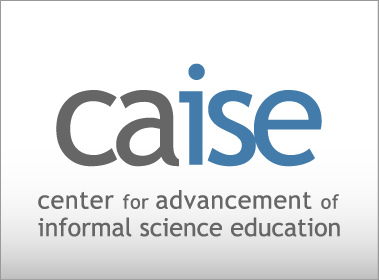Informal science education (ISE) is lifelong learning in science, technology, engineering, and maths (STEM) that takes place across a variety of different settings and experiences outside of the formal school classroom. These can include film and broadcast media, science centres and museums, zoos, botanical gardens, cyberlearning, gaming and many other public spaces.
InformalScience.org is a central portal to project, research and evaluation resources designed to support and connect the informal STEM education community in museums, media, public programs and a growing variety of learning environments primarily in the U.S. The website is operated by the Center for Advancement of Informal Science Education (CAISE), an NSF-funded resource center for the Advancing Informal STEM Learning (AISL) program.
Resources available:
-
Projects are funded by the National Science Foundation, as well as other public and private funders. Projects in the collection are diverse, but can broadly be defined as engaging public audiences in informal STEM learning
-
Research and reference materials included peer-reviewed educational research, conference proceedings, research briefs, presentations, reports, thesis and dissertation work, and other works that explore the impacts, contexts, and lessons learned from informal STEM learning experiences and settings
-
Evaluation reports share project impacts and evaluation findings. These include submissions from professional evaluators conducting front-end, formative, summative, and other evaluation studies. Projects are invited to publicly share their evaluation reports via InformalScience.org to share results and help others build upon their experiences.
You can search the collection directly or browse categories on the website. Registered members can upload resources, become listed as potential collaborators and connect to a network STEM based professionals in the informal science field.
Examples of resources on Science Centres:
Health Messages at Science Centers in South Africa: What Is Possible? - In this article, Lorenzo Raynard, manager of science communication at the South African Agency for Science and Technology Advancement (SAASTA), discusses how science centers in South Africa are able to effect health-related behavioral change and urges science centers to engage the public in deeper health education. Raynard suggests that through collaboration with outside organizations, science centers can more fully integrate public health into their core functions.
VISIT https://www.informalscience.org/
This work, unless stated otherwise, is licensed under a Creative Commons Attribution 4.0 International License



Please Sign in (or Register) to view further.